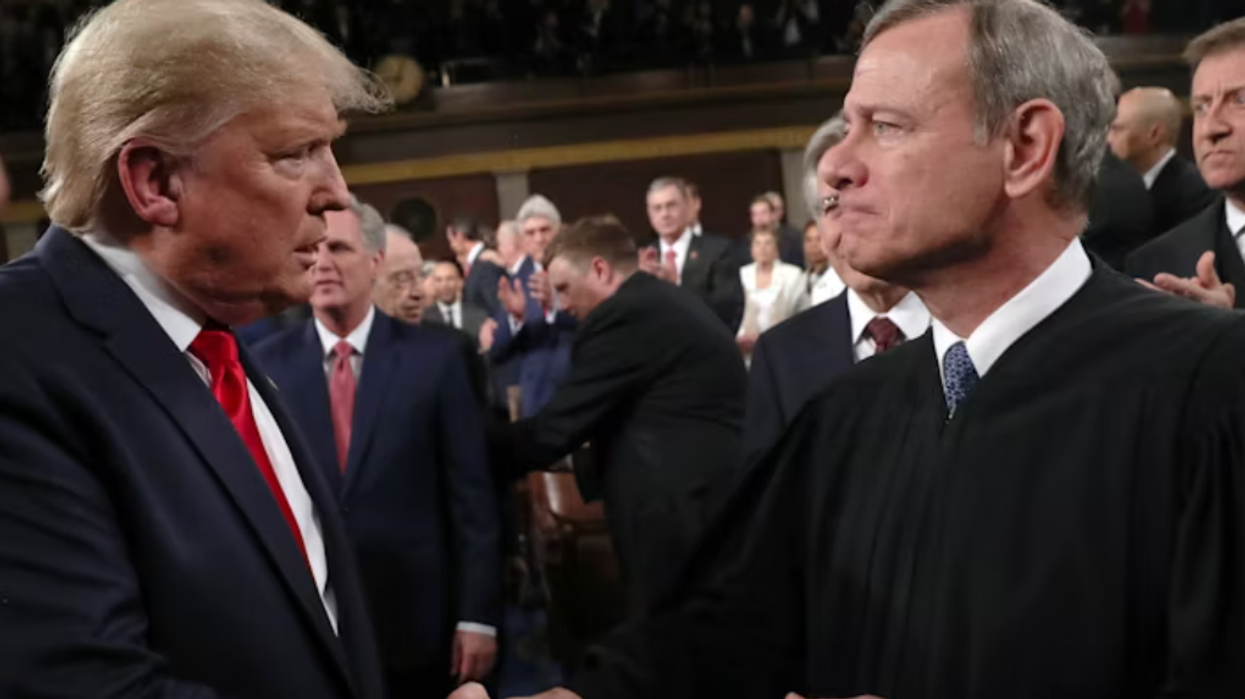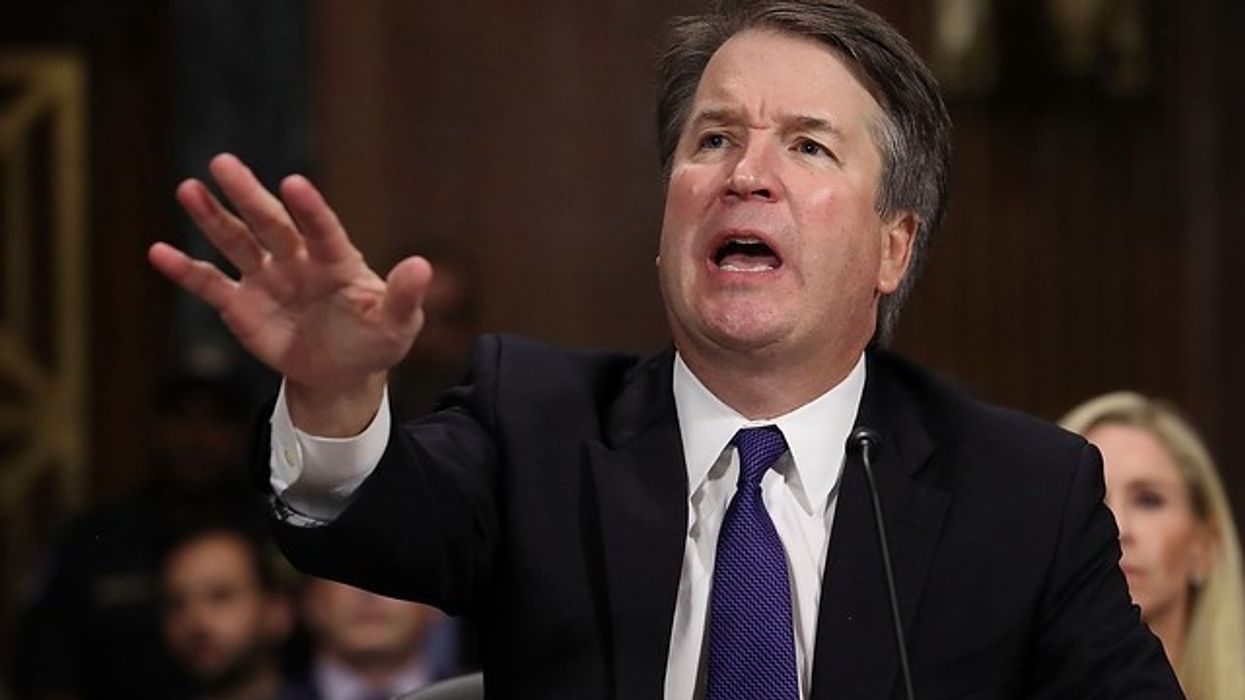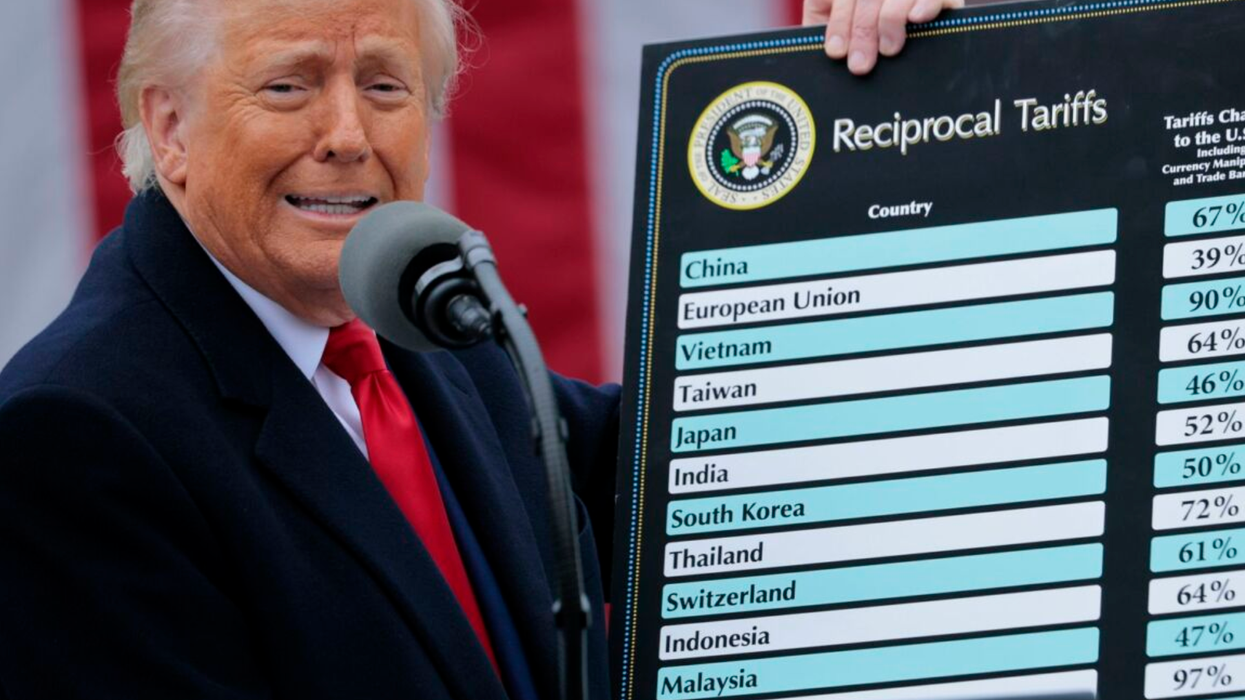Supreme Court Strikes Down Trump Tariffs In Major Blow To White House
In a 6-3 ruling. the Supreme Court has rejected the legal basis for President Donald Trump’s sweeping global tariffs, imposed on “Liberation Day” in April 2025.
“The Supreme Court has struck down President Trump’s tariff authority, saying his claim of emergency authority to issue sweeping tariffs to America’s trading partners was unlawful,” Politico’s Kyle Cheney reports.
NBC News called it a “major blow” to President Trump.
During oral arguments, justices appeared skeptical of the Trump arguments. Chief Justice John Roberts said that the tariffs were “an imposition of taxes on Americans and that has always been the core power of Congress,” as Axios reported.
President Trump has repeatedly argued that his reciprocal tariffs — which studies show are almost entirely paid by American consumers and businesses — were necessary for national security. The administration relied on an obscure provision of U.S. trade law that allows a president to impose tariffs without congressional approval if imports are deemed a threat to national security. Critics, however, argued that the statute was never intended to justify sweeping, permanent global tariffs.
Trump’s public statements repeatedly broadened his rationale. At the beginning of the year, declaring the Supreme Court’s impending decision would be “their most important (ever!) Decision,” he claimed the tariffs “have rescued our Economy and National Security.”
Last month, Trump warned that “if the Supreme Court rules against the United States of America on this National Security bonanza, WE’RE SCREWED!”
As recently as Thursday, Trump lambasted the high court for taking, as he put it, “forever,” to release its decision.
“And to think I have to be, in the United States Supreme Court for many, many months, waiting for a decision on tariffs — without tariffs, this country would be in such trouble right now,” Trump said.
“I’ve been waiting forever. Forever. And the language is clear that I have the right to do it as president. I have the right to put tariffs on for national security purposes, countries that have been ripping us off.”
Just weeks ago, Trump told Fox Business that he had had an “emergency call from, I believe, the prime minister of Switzerland, and she was very aggressive. Nice, but very aggressive.”
“Again and again and again. I couldn’t get her off the phone,” the president continued, as The Hill reported. “So [the tariffs were] at 30 percent, and I didn’t really like the way she talked to us, and so instead of giving her a reduction, I raised it to 39 percent.”
The president has also suggested that there is so much money coming into the Treasury from tariffs that he would be sending tariff “dividend” checks to Americans — a claim he appeared to have forgotten about last month when asked by a reporter.
Trump has also claimed that if the Court struck down his tariffs, the U.S. would not be in a position to provide refunds, which could run between $100 billion and $200 billion. Treasury Secretary Scott Bessent, however, stated that providing refunds would be possible.
It has been estimated that tariffs are costing the average American family between $1,300 and nearly $5,000 annually.
Economist Justin Wolfers, when asked about the effectiveness of Trump’s tariffs, told CBC News, “If the trade deficit this year is bigger than it was last year, and this year we have high tariffs and a trade war and last year we didn’t, I guess it doesn’t require a lot of fancy statistics to infer that Trump’s tariffs didn’t help the trade deficit.”
On Friday, he wrote, “We had this big lousy trade war, and we’ve got nothing to show for it.”
The Wall Street Journal editorial board on Thursday wrote, “If your tariff policy is so unpopular that you have to bully the central bank into not talking about it, maybe it’s time for a new policy.”
Reprinted with permission from Alternet












